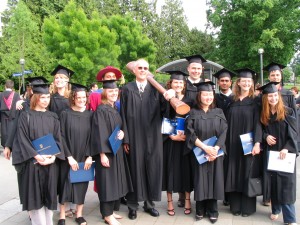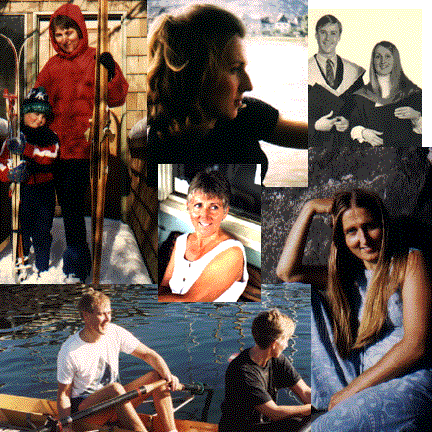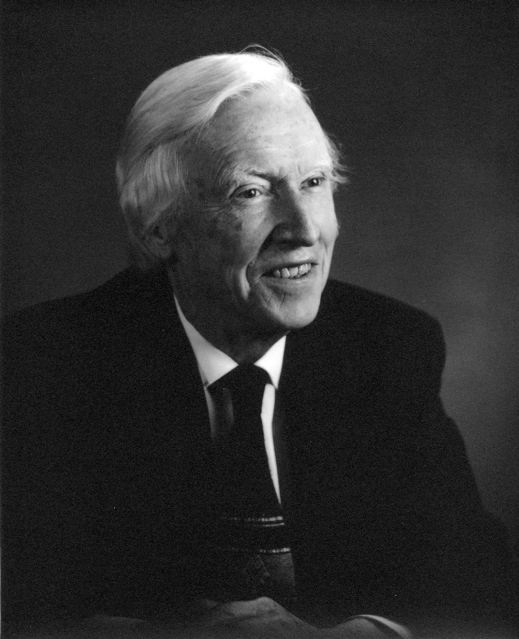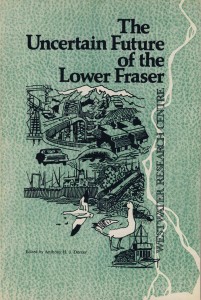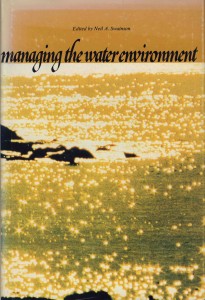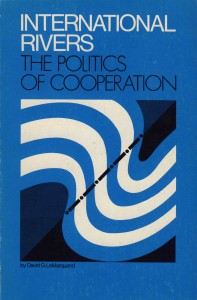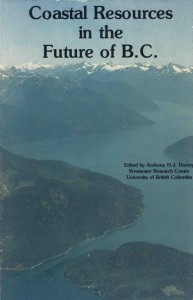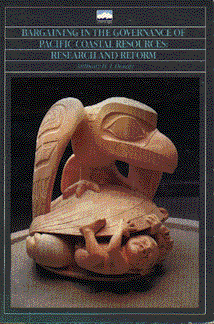A pracademic is active as both an academic and a practitioner in his or her subject area – a person who aspires to being a practical academic and a reflective practitioner. This describes well my 40-year accidental career since obtaining an MA in Economic Science from Aberdeen University in 1969 and two years later an MS in Regional Planning from Wisconsin University. My entire worklife from 1971 to 2012 was at the University of British Columbia, where I moved through a variety of positions and always returned after research leaves and special assignments. Today I am Professor Emeritus of Community and Regional Planning. Over the years my practice from the local to the global level around the world has involved urban, water and natural resources planning, and facilitation and mediation of sustainability issues in varied community and regional governance contexts in British Columbia, Europe, Australia, Peru and the United States. As a practitioner and an academic I have been active throughout my career in various professional organizations including the Canadian Water Resources Association, Canadian Institute of Planners, Planning Institute of British Columbia and the Association for Conflict Resolution. Below, I highlight my story, linking to where there is more detail and exploration of my evolving ideas on the associated pages (see listing under Serendipitous Pracademic in navigation top right above).
Out of Tragedy
My career evolved through a succession of serendipitous events. I was born and grew up in Cambridge, England before going away to university at Trinity College, Dublin in 1964. At the end of my first year at Trinity, where I was studying Mathematics, Physics and Chemistry, my father died unexpectedly. This influenced many things in my life and crystallized growing doubts about the educational path I was on. When I returned to Trinity in the fall, I went back to first year and started over in English Literature, Philosophy and Economics.
By Chance
The following year an extraordinary lady, known to everyone as Plu and who was to become my life-partner, lured me to where she was studying Zoology and Psychology at Aberdeen University. My studies continued there in Political Science and Economics and we married in December 1967. A chance meeting in Aberdeen with an American student, led us in the following summer to the University of Wisconsin where her father was a professor and who helped us to find jobs as research assistants for three months. The professors we met during that remarkable summer of 1968 led us to apply and be accepted to work with them in graduate school. Plu studied Animal Behaviour Psychology in Harry Harlow’s renowned Primate Lab and I began a professional degree in Regional Planning, focusing on water resources management and working with Irving Fox, who was at the time leading a major interdisciplinary research project on water quality management in the Wisconsin River.
Leap of Faith
Irving was not only an internationally recognized political science and water resources pracademic but also an avid conservationist and white water canoer. I was therefore not surprised when he accepted an invitation to join UBC to establish a new interdisciplinary water resources research centre and live close to the Canadian wilderness. I was amazed, however, when he asked me on finishing my masters thesis on The Design of Policies and Institutions for Water Quality Management in the Wisconsin River, if I would like to go with him as his assistant. Prior to this, Plu and I had assumed that we would return to England upon completing our masters degrees and start to look for work, although neither of us had any idea what this might be. Irving’s generous and exciting offer to go with him to Vancouver was quickly accepted, sight-unseen, in the belief that who knows what opportunities it might lead to and, besides, it would enable us to postpone going back to England and starting unplanned careers for another year or two.
From Rats to Children
Driving into Vancouver and down to Jericho Beach on a magnificent August afternoon in 1971 we could not believe our good fortune. An inspired Plu decided to shift from working with animals to children and enroled in the Certificate Program in Early Childhood Education offered by the UBC Child Study Centre. A year later when she graduated the Provincial Government was just beginning to introduce kindergarten into the public schools and she started a 30-year career teaching K and K-1, firstly in Delta until the 1975 birth of our daughter, Zosia, and after maternity leave, in Richmond until her retirement in 2003.
From Student to Apprentice
I began working at UBC as the Assistant to the Director of the Westwater Research Centre, newly established by Irving as a unit in the Faculty of Graduate Studies (FOGS). So much was novel. Both of us were new to Canada; one a Yank, the other a Brit and each sailing in uncharted waters. It was early days for interdisciplinary research at UBC, as everywhere at that time; FOGS was where UBC put such misfit units and their number, including SCARP which was the founding FOGS unit in 1953, was still small. This was also a time of enthusiastic experimentation with citizen involvement by governments in North America and Westwater took the University into these unexplored rapids by creating multistakeholder advisory committees for each of its research projects and a Council to guide the development of the Centre. Watching Irving get all this underway, drawing on all his past experience from working as a kid in his small village store, teaching in a one-room school in upper Michigan, serving as an administrator in the US Army, and leading the development of water research programs at Resources for the Future in Washington, D.C. and then Wisconsin University, gave me an unforgettable and invaluable start to my apprenticeship with this extraordinary and highly respected pracademic.
From Researcher to Instructor
Irving was also appointed as a Professor in SCARP, where he taught courses and worked with graduate students on planning for natural resources management studies. From the beginning he invited me to work alongside him with the students. Slowly, as in any good apprenticeship, he gave me opportunities to talk about what I had learned from working on his research projects in Wisconsin and increasingly in British Columbia. This eventually led me into working with graduate students undertaking thesis research with Irving and other faculty members as others became associated with Westwater and engaged in its first major research project on water quality management in the Lower Fraser River.
Becoming a Facilitative Leader
Gradually Irving allowed me to shape and develop my job description as Assistant to the Director. Most of my time was spent in coordinating the activities of the growing numbers of faculty, students, staff and collaborators with whom we were working in Westwater. Environment Canada had given UBC a commitment to provide the Centre with annual development grants for the first five years and these funds enabled us to attract researchers with offers of support and to work with them in securing further resources. The funding was focused on the studies of water quality management in the Lower Fraser and within four years the Centre had a core team of jointly appointed faculty with expertise in environmental chemistry, fish biology, economics, political science, and planning, along with a diversity of other faculty, students and staff collaborating together in the research. Altogether, faculty, research associates, technicians and staff, numbered around 25; on top of these was a growing number of masters and doctoral students doing their research.
Building on work I had done in Wisconsin, I took the lead on studies of the technologies and policy mechanisms for water quality management. To stimulate discussion about the Centre’s research in the wider community and attract media coverage it was part of my job to organize public lectures and exhibits in downtown Vancouver. By the end of the development grant period in 1975 much had been achieved including production of a wide variety of publications. Among these were journal articles and book chapters based on my own research and a book that I edited bringing together chapters from each of the members of the Westwater team and summarizing the results of our studies on water quality management in the Lower Fraser River.
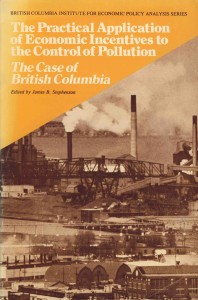
The Practical Application of Economic Incentives to the Control of Pollution: The Case of British Columbia (James B. Stephenson Ed. 1977)
My job had by then expanded to involve facilitating and conducting not only interdisciplinary research and public involvement but also administration of the Centre including the publications program, accounting and fund raising. All of this resulted in me being promoted to Assistant Director. In five short years much had changed in terms of the future outlook; in addition to all these surprising developments relating to my work at UBC, Plu and I had bought a house in 1973, started a family with the birth of Zosia in 1975, and were thinking about becoming Canadian citizens.
From Bargaining to Negotiation
During my masters thesis research I stumbled upon a paper by Matthew Holden, entitled “Pollution Control as a Bargaining Process: An Essay on Regulatory Decision-Making,” that stimulated me to explore an entirely different way of putting effluent charges into practice in the Wisconsin River and resulted in my first publication: “Effluent Charges, Information Generation and Bargaining Behaviour,” published in the Natural Resources Journal in 1973. Holden’s 1966 essay has led me to a career long interest in bargaining and negotiation in governance processes. As I became more familiar with how the stakeholders interacted in managing water quality in the Lower Fraser River, it seemed to me that it involved a great deal of bargaining. For many observers this was seen as a failing of the governance system in that regulations were not being strictly enforced. I looked at it differently. For me it reflected not just power games but how stakeholders were wrestling with the challenges of the great uncertainties relating to the science and values involved in regulatory decision-making. This led me in the second half of the 1970s to begin thinking more about whether bargaining is a problem that we should eliminate or whether it was in reality a good way to deal with practical challenges, and that, if it is, should we be considering how to better train people to bargain and design governance processes so as to capitalize on the best that bargaining can offer. In 1978 funding from the Economic Council of Canada, that at the the time was interested in ways to improve Canadian regulatory processes gave me the opportunity to study a specific case that resulted in the book entitled Salmon Protection and the BC Coastal Forest Industry: Environmental Regulation as a Bargaining Process, written with Michael McPhee and Sam Sydneysmith. This case study demonstrated the ubiquitous use of bargaining processes, their immense impact on the efficiency and effectiveness of regulation, and the critical need to improve participants bargaining skills and the design of governance processes to support and facilitate them.
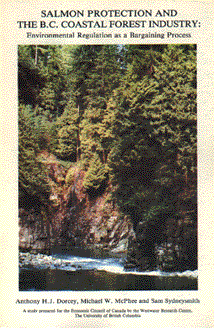
Environmental Regulation as a Bargaining Process (A. H. J. Dorcey, M.W. McPhee, S. Sydney-Smith, 1980)
Around the same time I discovered that other academics and practitioners in North America were beginning to examine similar questions and were exploring how negotiation techniques that had been developed primarily in the fields of labour and international relations could be applied in resolving disputes in other areas such as environmental management and community development. The publication in 1981 of the seminal book Getting To Yes: Negotiating Agreement Without Giving In, written by Roger Fisher and William Ury, based on research by the Harvard Negotiation Project, gave me just what I had been looking for – a practical primer on how to negotiate that I could use in assessing the bargaining and negotiation that I observed and that could also be used to teach people how to negotiate. After reading the book I went to Cambridge to learn more by taking one of the short training courses being offered. Once again chance events, in this case stumbling on Holden’s article, had redirected me in an unexpected direction with major consequences for my career.
Here Be Dragons
By this time I had been at UBC for ten years and what had started as a short term assignment with Irving as Assistant to the Director had grown into a major career move involving relocation to Canada and becoming a Canadian citizen in 1980. But as a UBC Board Appointment my future prospects were uncertain. Although funding for my position came from the University, its security was contingent on the continued flourishing of the Westwater Research Centre by securing external research funds. By mid 1981 I had already served as Acting Director during 7 months when Irving went on leave in 1976 and then for a further 6 months when the new Director, Andrew Thompson from the Faculty of Law [add picture], who took over from Irving, took a leave to run the West Coast Oil Port Inquiry for the Federal Government. Each of these acting assignments provided great opportunities for taking on more responsibility and developing my capabilities, all of which I greatly enjoyed. Andy Thompson was also a pracademic with great experience as a Dean of Law and public interest lawyer, one who had earned immense respect in advising and representing First Nations. As Irving, he was an avid white water canoer and deeply committed conservationist. Working with him was an extraordinary opportunity to expand my understanding and capabilities, in particular of Canada. But, somewhat ironically, having had these outstanding opportunities to grow while working with Irving and Andy, made me think about the huge uncertainties around my longer term career prospects. My strong preference was to find a way, if at all possible, to continue at UBC where I had enjoyed such remarkably exciting opportunities and experiences.
When the opportunity suddenly arose to compete for a tenure track position as an Assistant Professor in the School of Community and Regional Planning with a part-time appointment in Westwater, I decided to try for it even though this meant resigning my position as Assistant Director so that my university funding could be used in part to establish the new position. Although I had by then established a respectable record of fund raising, research, publications and administration, I had only done occasional guest teaching and graduate student advising, and had never obtained a doctorate. It therefore seemed like a risky proposition but one never-the-less well worth trying. I concluded that if I could not be successful then it was time to advance my career in some other direction, although I had little idea what that might be. When, after some nerve-racking delays, I learned that I had won the competition and was offered the new faculty position I was hugely surprised and immensely excited. The dice had been rolled again and I had come up winners once more.
From Assistant to Associate Professor (Apprenticed Again)
In taking up the new tenure track position in 1982, jointly appointed as an Assistant Professor in SCARP and Assistant Director in Westwater, I was very much aware that I would need to focus my activities on building a strong case for tenure in five years time. Not having a doctorate, I understood my tenure case would need to be even stronger than usual if it would be successful. This meant developing a strong record in teaching and graduate student advising, while maintaining my research and publication activities as well as my continuing administrative responsibilities in Westwater. Brahm Wiesman, who was the SCARP Director, reinforced my appreciation of what I had to do and was extremely supportive, making sure that there was a reasonable balance between the expectations of me in the School given my continuing responsibilities in Westwater. Most significantly, he too was a pracademic, a planner with immense experience in community planning before taking up a faculty appointment at UBC in the later 1960s and who maintained a close working relationship with practitioners through the Planning Institute of British Columbia and the graduates of SCARP.
In 1983 I began teaching my graduate course Planning for Water Resources Management: Principles and Practices, which continued in an evolving form until my retirement in 2012. The following year I introduced a second course, Negotiation in the Planning and Management of Natural Resources. This course expanded over the years and eventually part of it became the course that continued until my retirement as Negotiation, Facilitation and Mediation: Principles and Practices. Each of these courses was designed to capitalize on the research being done in Westwater and set the focal topics into a larger context of their relevant literatures. The courses attracted students from not only Planning but also other graduate programs focusing on water and other natural resources, such as Civil Engineering, Mining, Forestry and Fisheries, as well as programs such as Law, Economics and Sociology where graduate students were concentrating on natural resources issues. A few of the students were registered in the committee degree program of the newly established (1980) Interdisciplinary Resource Science Program, that continued at the time of my retirement as the Resource Management and Environmental Studies (RMES) Program in the Institute for Resources, Environment and Sustainability (IRES). I also began to supervise students’ research and my first masters student graduated from SCARP in 1983: Robert Crandall – An Evaluation of Policy for Public Spas and Hot Tubs in British Columbia – a topic which immediately took me into new areas, establishing a pattern of learning together with my graduate students that was a major source of pleasure and my development throughout my career.
When we concluded the Westwater studies on water quality management in the Lower Fraser River in 1975, I began a series of studies on estuary and coastal zone management as the second major focus for the Centre’s research. In addition to the book on Salmon Protection and the B.C. Coastal Forest Industry (1980), two other volumes resulted; an edited series of public lectures entitled Coastal Resources in the Future of British Columbia (1979) and a monograph, Estuarine Habitat Management: A Prospectus for Tilbury Slough (1983).
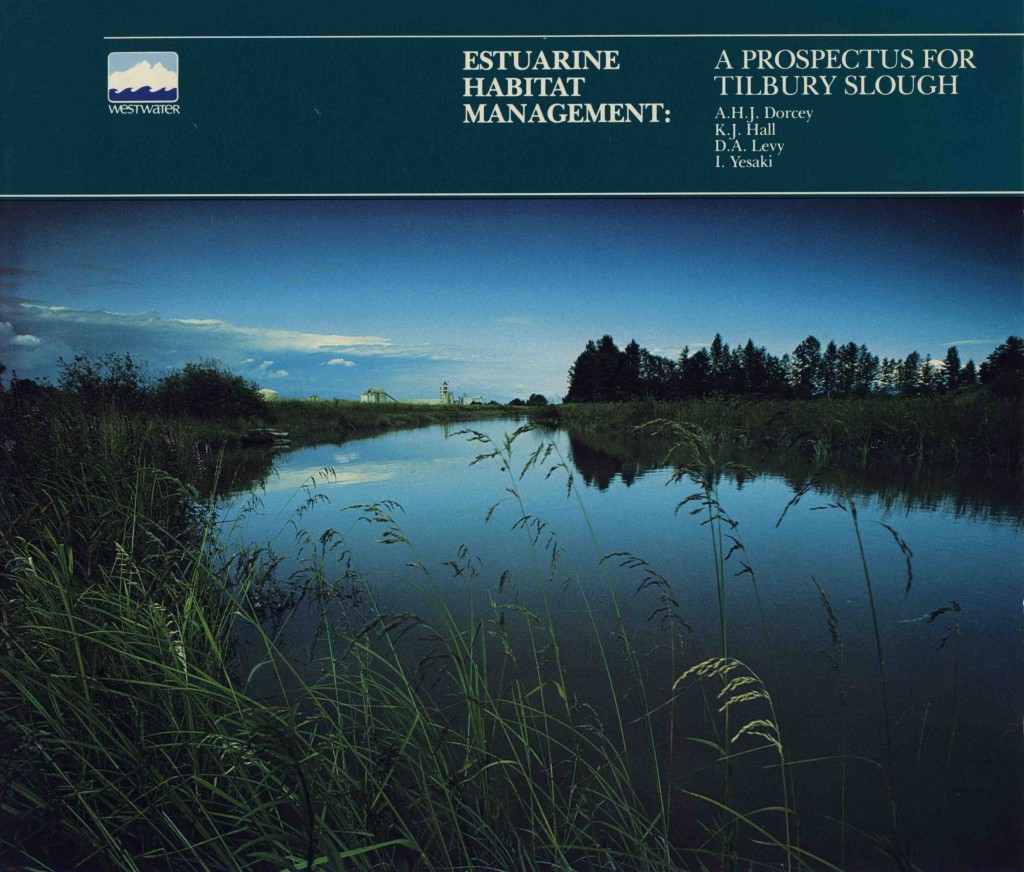
Estuarine Habitat Management: A Prospectus for Tilbury Slough (A. H. J. Dorcey, K.J. Hall, D.A. Levy and I. Yesaki 1983
It was at this point that I decided to write a book bringing together what we had learned in the coastal research with my own work on negotiation and governance. It drew on all the previous studies including the books mentioned above and incorporated the results of research that had been published in other places, notably a study of the potential and strategies for developing aquaculture in coastal British Columbia and an exploration of how ideas in the literature on the philosophy and sociology of sciences could inform negotiation and governance when there is controversy about the science, such as in pollution control and habitat management. The latter was largely the result of working with Brian Martin on his masters thesis in SCARP, The Causes of Scientific Disputes in Impact Assessment and Management: The Utah Mines Case, and illustrates well how graduate students working with me helped me to grow in important ways. The ideas in the book were tested in the courses that I began offering in the early eighties and when it was published in 1986 became one of the texts.
It was during the early 1980s that I had my first opportunity to get involved in a teaching and research project in a developing country. Thomas Northcote, a fisheries zoologist who had been one of the first faculty members to join Westwater when it was established in 1971 and who had a joint appointment as a Professor in Zoology, secured funding from the new program for Institutional Cooperation and Development in the Canadian International Development Agency (CIDA) to partner with the Instituto de Aguas Alto Andinas of the Universidad Nacional del Altiplano, in Puno, Peru. I was thrilled when he invited me to work with him on this project along with many others from Westwater as it would take me to Peru for the first time and give me the opportunity to work on water resources management issues relating to the renowned Lake Titicaca. The goal of the project was to assist faculty and students associated with the Instituto to develop their own capabilities for conducting training and research relevant to the challenges and opportunities of managing water resources in this high Andean basin. Although the watershed communities were relatively small and there had not yet been major resource developments in the drainages, there were already substantial water pollution and fisheries management problems. There were significant opportunities for improving the well-being of communities by resolving the emergent problems and capitalizing on the resources of the region. The project continued throughout the 1980s and much was achieved with the results being summarized in a book. My own involvement was limited to the first major team visit to Puno and working with some of the people who came to train at UBC for short periods. For me the project was an excellent opportunity to learn not only about Lake Titicaca but most importantly the challenges in making a contribution in a situation where I did not speak the language and knew almost nothing about the socio-cultural context nor the political systems within which water resource management issues arose and were addressed. These were valuable lessons in this early stage of my developing career and immensely helpful in guiding my future decisions on where I might be able to usefully contribute in places outside Canada.
[INSERT LAKE TITICACA BOOK COVER]
From Westwater’s first project on water quality management in the Lower Fraser River (1971-76) I had been attracted to understanding how such issues arose and were dealt with in practice. My studies as a graduate student at Wisconsin (1969-71) had led me into an examination of how the economist’s theoretical ideas of effluent charges might be put into practice in an actual situation, the Wisconsin River, and this took me, in turn, to the conclusion that implementation would inevitably involve bargaining between those wanting to impose the charge and those in industries and municipalities who would have to pay it. Studies I undertook in British Columbia during the 1970s quickly revealed that bargaining was omnipresent in the governance processes relating to managing water and the associated lands and natural resources within river basins. This reality of bargaining and how it operated in the associated processes of governance were further revealed to me by becoming involved in various committees and public processes relating to issues that Westwater was addressing in its research. These experiences proved to be invaluable for someone who was very new to Canada to begin not only begin understanding not only the formal but also the informal institutional arrangements and processes of governance in all their immense complexity. Serving on committees such as those considering secondary treatment of sewage for Greater Vancouver and coastal zone management for British Columbia were outstanding opportunities to meet governmental and non-governmental stakeholders and observe them in action. I began to see how research in the academy and practice in the wider community could feed on each other and be mutually reinforcing. Early results led to invitations to get involved in discussions about policy and institutional innovations with others in Canada, such as through the Economic Council of Canada’s studies of regulation, and internationally, such as the OECD review of coastal zone management around the member countries. All of these experiences convinced me that I should emphasize this virtuous circle in all I was doing within Westwater. And when I began teaching it seemed only natural to make the integrated consideration of principles and practice a distinctive component of each of my courses thus further reinforcing the virtuous circle.
NOTES ON TEXT TO BE DEVELOPED
Hence joined the Planning Institute of British Columbia (PIBC) – necessary to be a practicing planner with professional credentials
Practice within PIBC ’84 and onwards
Record for tenure and promotion decision in 1985
From Associate Professor to Professor
1988 sabbatical and Killam Fellowship studies in Australia and Canada
1987 Brundtland and Fraser Basin project 2 volumes and video
1990 BC Round Table on Environment and Economy
Record for promotion to Professor
Professor and Practitioner from 1990 onwards
Westwater and IRES
Chapters on experiences as member of BC Round Table and inaugural Chair, Fraser Basin Management Board (’90-’94
Am I going to be a politician or a professor at the university?
Professoe and practitioner
Chairing the Hampton Committee providing funds for innovative interdisciplinary research across the university
Work as facilitator/mediator for World Bank: World Commission on Dams, Nile River Basin, Global Forests Policy
Professor and Director SCARP 1999-2006
Teaching and doctoral students
Vision for SCARP
Planning education innovations
Challenge of re-building the School
Students award of certificates to faculty for Great Transition, hosting Canadian Association of Planning Students Conference
Hiring new faculty
Working with PIBC and member of its Education Committee
Reflective Pracademic
to be developed
